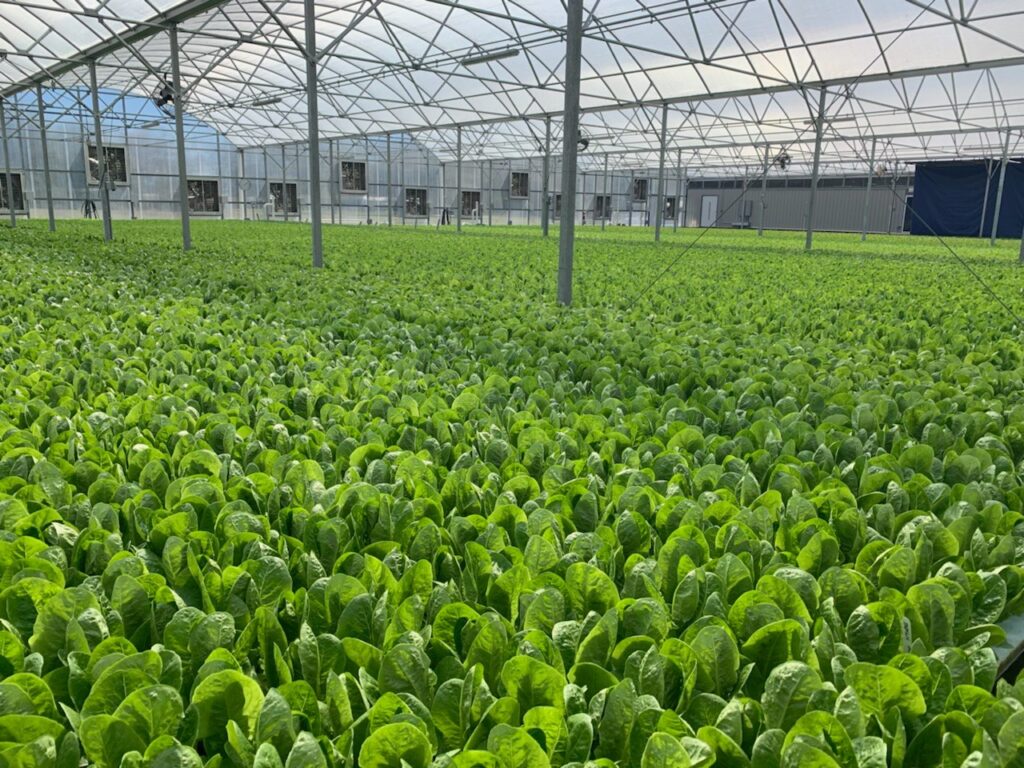Traders Hill Farm Takes Sustainable Farming to Another Level
by TERESA SCHIFFER
Farming is changing rapidly in the 21st century. We are seeing major improvements in the way farmers care for the land they cultivate, innovations in the technology used to plant, care for, and harvest crops, and greater emphasis on overall sustainability and environmental awareness. One farm in North Florida is taking a novel approach to sustainable farming through the use of aquaponics.
Aquaponics is the utilization of hydroponic growing methods in tandem with aquaculture. A nutrient-rich, natural fertilizer for food crops is generated by the fish, and the crops grown hydroponically effectively filter water that is recirculated through the fish tanks. This creates a self-contained ecosystem that drastically reduces the water required to grow the crops. Traders Hill Farm in Hilliard, Nassau County, Florida, is committed to growing high-quality vegetables, herbs, and fish while minimizing their environmental impact.
Marcia Douglas, director of business development at Traders Hill Farm, recently talked with us about operations at the farm. Among the many hats Douglas wears for Traders Hill Farm are those of salesperson, marketing representative, forager, and produce buyer. She has been with Traders Hill Farm for three years and is excited about the transitions currently taking place.
As with so many other enterprises this year, Traders Hill Farm has had to adjust the way they do business due to interruptions caused by the COVID-19 pandemic. When the produce distributors that Traders Hill Farm works with were forced to temporarily shut down earlier this year, many of the restaurants that were purchasing the leafy greens grown in the Hilliard greenhouses contacted the farm directly to express their dismay. In response, Traders Hill Farm began providing their produce directly to restaurants, schools, and to the public through CSA (Community Supported Agriculture) boxes.
Traders Hill Farm has recently received a grant from the USDA to expand their farm-to-fork program. They are preparing to hire an additional forager and produce buyer. Foragers visit other farms in the area to find produce that needs to go to market before it goes to waste. These farmers may not have the marketing resources to move their products, or they may have unusual specialty crops that are not commonly available. Produce buyers acquire the fruits and vegetables to put in the CSA boxes and distribute to various retailers and institutions.
Tracy Nazzaro is the current president and general manager of Traders Hill Farm, which was established in 2013. In 2012, Richard Blaudow, chairman and CEO of Illinois’ Advanced Technology Services Company, acquired the 100-acre property along the St. Mary’s River, the former site of a Tyson Foods chicken farm, and, with the help of Angela TenBroeck, founder of the Center for Sustainable Agricultural Excellence and Conservation, transformed the old chicken barns into greenhouses housing low-density, 800-gallon tilapia tanks.
In an aquaponics system such as the one at Traders Hill Farm, the fish waste water is processed through a moving bed bioreactor that removes nitrogen-rich solids before being transferred to plants that grow on floating foam rafts. The crops absorb nutrients from the water, preparing it to be returned to the fish tanks, thus creating a self-contained ecosystem that is constantly recycling water. Conserving water in this way results in the system using only about 5 percent of the water that would normally be used to grow the same types of crops.
Leafy green vegetables and herbs, such as Romaine lettuce, pak choi, basil, and various microgreens, thrive in Traders Hill Farm’s greenhouses. Once harvested, the tasty greens have a longer shelf life than conventionally grown crops, advertised as lasting up to two weeks. The fish produced on the farm are also of superior quality. Tilapia is raised on a nutritious diet of lettuce, duckweed, and pellets, resulting in a soft, white meat in the two-pound, market-ready adult fish.
The Nassau County operation has the distinction of being the second-largest aquaponics farm in the U.S. Crops are produced without the aid of added pesticides, herbicides, or fungicides. Consumers are willing to pay a little more for the first-rate products because they know that the produce from Traders Hill Farm passes rigorous safety standards and is grown locally. Traders Hill Farm is currently the only aquaponics farm in the United States to earn Safe Quality Food status by exceeding the standards set by distributors and the USDA.
The entire crew at Traders Hill Farm is dedicated to producing delicious, top-tier produce and fish in a sustainable, ecologically sound way. They are committed to providing support to their local agricultural community and the many people who rely on their products. Throughout Central and Northeast Florida, and Southern Georgia, the distinctive products of Traders Hill Farm are served in high-end resorts, popular restaurants, numerous schools, and countless family dinner tables.
Douglas sums up the mission of Traders Hill Farm: “We really do believe that knowing where your food comes from, knowing your farmers, eating healthy, eating local, eating what’s in season for your area – all of that is very important for an overall healthy lifestyle. We’re here to support each other, other farmers, our community. It does matter how you grow your products. We care about food safety. That’s our number one core value.”

